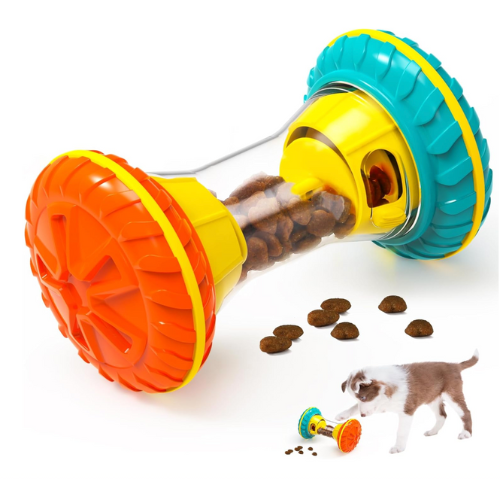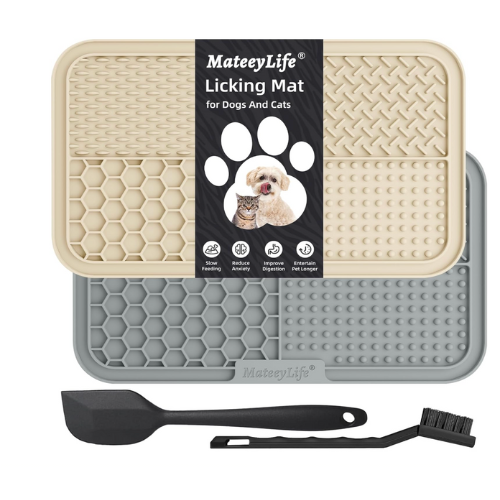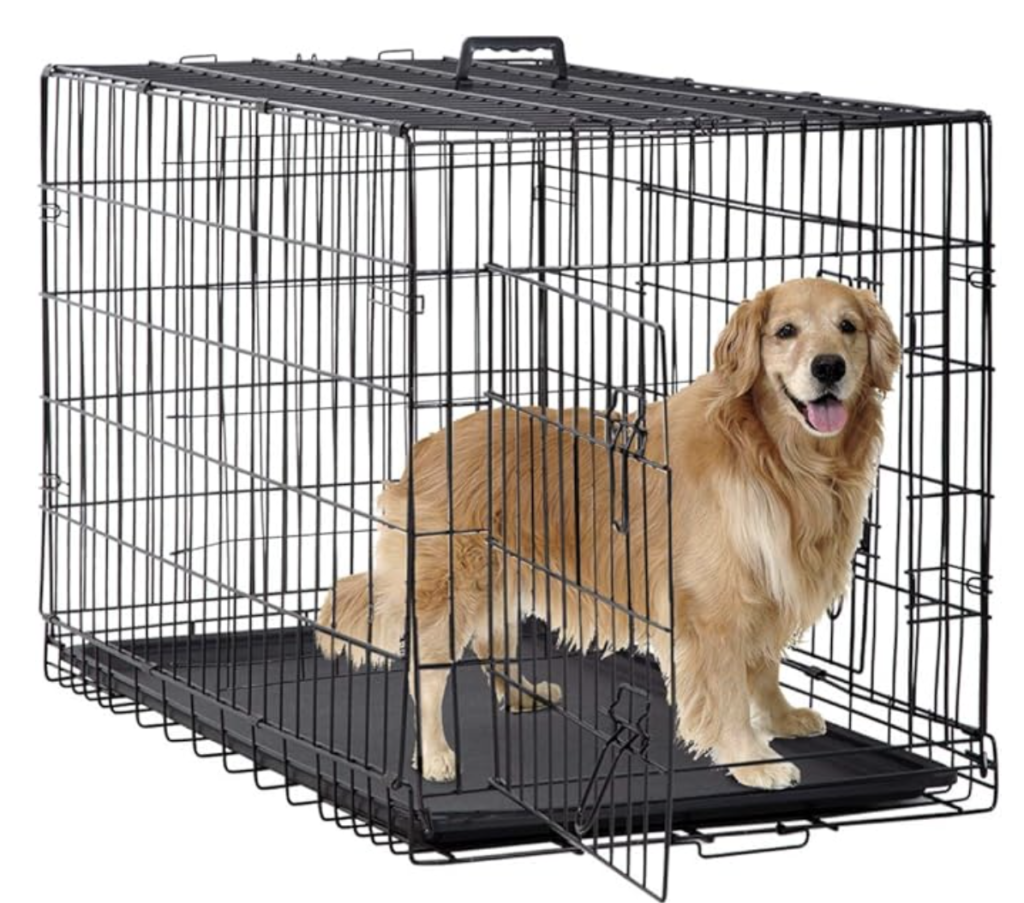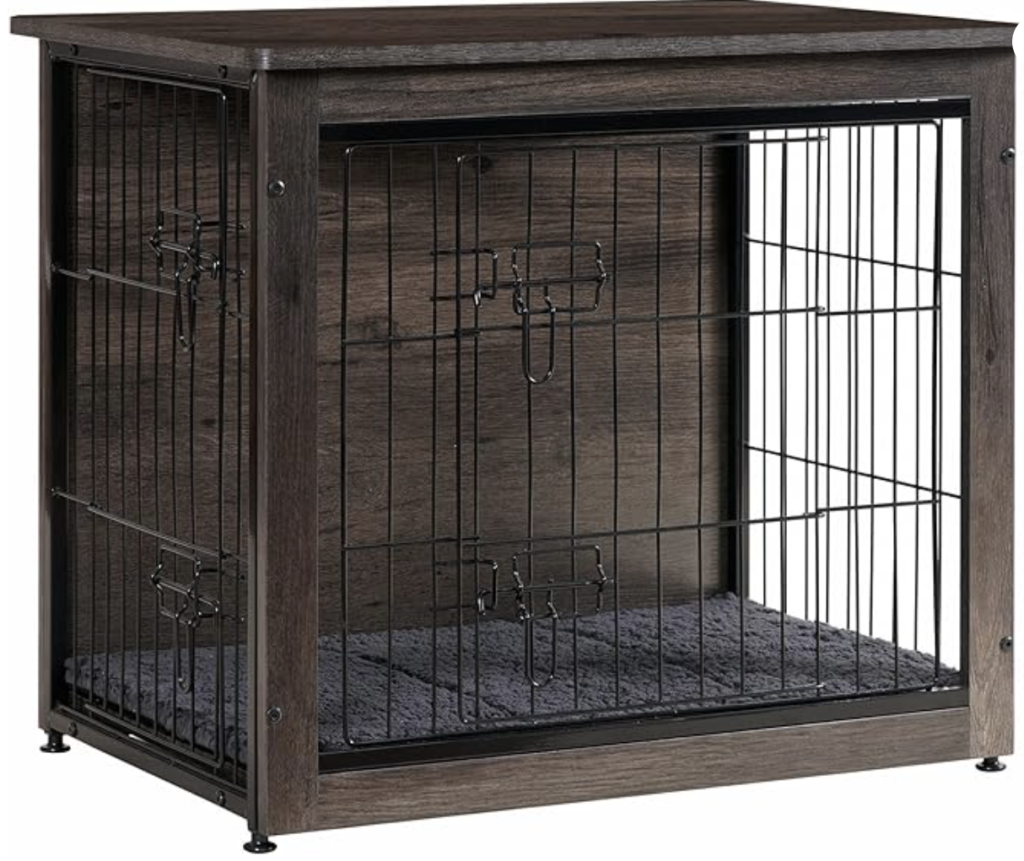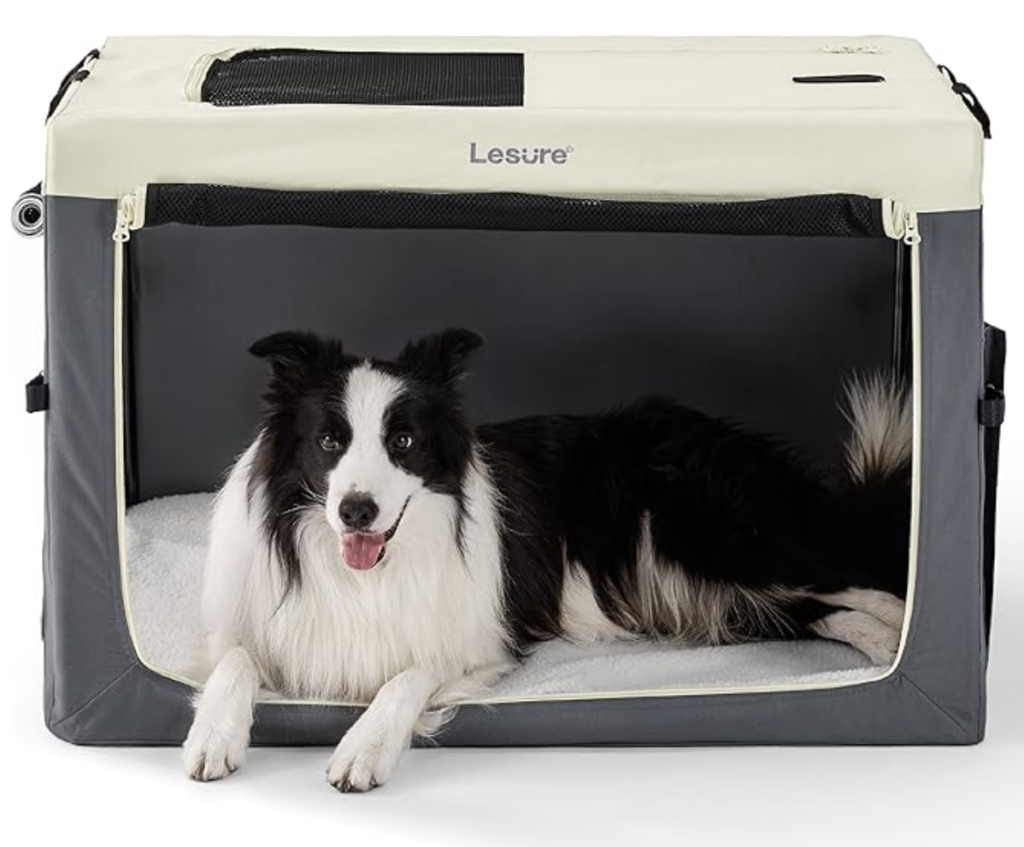If you are introducing a puppy into your home, it is very likely that you will need to house break them during those first few months. Housebreaking is another term for potty training your dog so that they pee and poop at certain times and outside (not on your carpet).
How to Potty Train Small Dogs: What You Need to Know
If you are considering a smaller size dog and wondering if housebreaking small dog breeds is easier than larger dog breeds, then this is the blog post for you.
There are many aspects of dog owner life, where having a smaller dog is easier, especially if you are not a trainer and the dog is meant to be a companion animal. Like they say, small dogs, small problems, big dogs, big problems, so let’s get right in and learn 10 tips to housebreaking your small breed puppy today!
Read to the end to find out what small dog breeds are known for being easily potty trained!

You might also be interested in:
- Is It Okay to Crate My Dog When I’m at Work?
- When Should I Hire a Trainer For my Dog’s Separation Anxiety?
- Dog Sitter Rates in 2025: How to Navigate the Cost for your Pooch
The Difference Between House Training Puppies And Adult Small Dogs

When it comes to house training small breed dogs, the primary difference between getting a new puppy versus an adult, is the size of their bladders. Puppies tend to have much smaller bladders than fully grown dogs, meaning that they need to pee more frequently. This can often make house training a challenge, as even a short period of inattention can result in a puddle on your floor or carpet.
In contrast, adult dogs generally have larger bladders, which allows them to hold it for longer periods. This means that potty training an adult dog is often more straightforward than potty training a puppy, as there is less risk of accidents.
However, to potty train an adult dog can be hard in that they are already set in their ways and can resist being trained.
Ultimately, whether you are house training a puppy or adult dog, ensuring that you remain consistent and patient throughout the process is key to success. And with time and some basic housebreaking tips, both puppies and adults can learn to become reliable house pets!
It is actually recommended to have at least 1 month off from any other commitments to fully focus on potty training, however if are not able to take that type of time off from work, hiring a dog walker to support your pup’s existing schedule will help take the edge of for you.

If you’re based in Chicago, we recommend Green Paws Chicago for compassionate, professional dog walking. They’re a trusted local service that helps your dog stay active and social even while you’re away.
(When signing up, don’t forget to mention Chicago Urban Pets to support the blog and help us continue creating helpful content.)
The Best Time To Potty Train Your Small Breed

When it comes to potty training a small breed, it is crucial to start early and be patient as they tend to have very small bladders. As such, the best time to begin potty training your little companion is as soon as you bring him home.
By starting as early as possible, you can help establish good potty habits in your pup so he can become an independent little potty master in no time!
Additionally, since new puppies are very impressionable and eager to please, they will often be more motivated to learn potty training skills than older dogs.
If you find that your dog does not seem to be making progress with housebreaking, don’t give up hope! Remember that small breed dogs tend to have a higher energy level, so it may just take a bit more time and patience to get them on the right track.
Decide On Your Potty Training Strategy Before Bringing Your Pup Home

When it comes to potty training your small breed dogs, it’s important to have a clear strategy in mind. Whether we choose a schedule-based strategy or incorporate a rewards-based system, consistency is key.
That means being diligent about taking our pup outside for bathroom breaks on a consistent schedule, and reinforcing good behavior through positive reinforcements like treats and praise.
Regardless of which approach we opt for, it’s best to start training early and be prepared for some setbacks along the way. With consistency, patience, and perseverance, however, we can successfully potty train our little pooches and help them develop healthy habits that will last a lifetime.
5 Things To Know When Preparing To Potty Train:
Before you dive into potty training, it’s important to set yourself—and your dog—up for success. Taking a little time to prepare can make the entire process smoother and less stressful. From understanding your dog’s age and developmental stage to gathering the right tools, here are five key things to consider before you begin.
- Your Dog’s Age: Puppy’s have smaller bladder than adults, this will affect how many hours between potty breaks your dog can hold sit. There will also likely want to pee after naps, playtime or training so taking them out at these times is critical.
- Prepare For Crate Training: Dogs are known to not potty in their sleeping area. Having your dog in a crate when home alone is a great resource while doing the whole training thing!
- Take Advantage Of Potty Pads: It can be exhausting running in and out for your dog to potty, especially if you live in an apartment complex. Potty pads can take the edge off by providing an additional option for your pup to potty and will help you reduce accidents in unwanted places. We have used a grass reusable option as well as traditional pads. Both work well but the grass option was a bit hard to clean.
- Invest In An Indoor Playpen: In the beginning you will need to take your dog out in the middle of the night as well before they can make it in the crate the whole time without peeing. If you prefer getting your beauty sleep in one stretch, invest in playpen where you dog has the liberty to pee on a pad in the middle of the night without getting into trouble when the lights are off. We got our Yorkie puppy this play pen, as he was able to jump over the lower ones.
- Consider Your Schedule: Are you home most days or still working 9-5? If so consider hiring a dog walker to help with their potty training schedule.

If you’re based in Chicago, we recommend Green Paws Chicago for compassionate, professional dog walking. They’re a trusted local service that helps your dog stay active and social even while you’re away.
(When signing up, don’t forget to mention Chicago Urban Pets to support the blog and help us continue creating helpful content.)
10 Housebreaking Tips for Small Breed Dogs

Potty training is often one of the biggest challenges facing new pet owners. And while it may seem daunting, the good news is that potty training your small breed dog doesn’t have to be complicated – or take months to achieve.
With a little patience and some consistent effort on your part, potty training can be a relatively smooth process. Here are 10 tips to help you get started:
Tip 1. Start Early:
The earlier you start potty training, the better. Small breeds tend to have small bladders, so it’s important to get them on a schedule as soon as possible.
Tip 2. Be Consistent:
Housebreaking requires consistency on your part. That means taking your pup out on a regular schedule and reinforcing good behavior with a small treat and praise. (If you are not always home at the same times every day, consider hiring a dog walker)
Tip 3. Use Rewards:
Using rewards, such as a small treat and praise, can be effective for encouraging your puppy to learn good potty habits. Make sure to give them when they go pee and / or poop outdoors, together with plenty of praise.
Tip 4. Be Patient:
Housebreaking small breeds can take time and patience, so try not to get frustrated if progress seems slow or if there are setbacks along the way. Every day is an opportunity to try again.
Tip 5. Seek Professional Help:
If you’re struggling to potty train your small breed pup, consider seeking out professional help from a dog trainer or behaviorist. We’ve had many clients have great success by consulting a dog training. If you want recommendations for a dog trainer, you can send us an email at admin@chicagourbanpets.com
Tip 6. Choose The Right Products:
When it comes to potty training, there are many products available that can make the process easier, such as Puppy Pads or artificial turf to put out on your balcony.
Our favorite dog potty training products are:
- Comfortable Crate for small dogs, with cushion.
- Dog training treats.
- Artificial potty grass (I would only use this outside on a balcony)
- Stain and Odor remover cleaner spray
Tip 7. Be Prepared For Accidents:
Even with the best potty training plan, accidents are inevitable. Be prepared with plenty of cleaning supplies on hand and try to remain calm if an accident does occur. Consider buying the stain and odor remover spray I suggested above as its non-toxic for pets.
Tip 8. Establish A Routine:
Having a set potty break schedule can be helpful for both you and your pup. Try to take your puppy out at the same times each day and after meals or naps. The general rule of thumb is a puppy and hold themselves as many hours as months they are old.
For example, a 2 month old puppy can hold themselves for 2 hours, a 6 month old puppy can hold themselves for 6 hours. Consider that this is a blanket rule for all size dogs, so your smaller dog breed might be on the shorter end of that curve.
Tip 9. Watch For Potty Signs:
Pay attention to your puppy’s body language and learn to recognize when they need to go potty. Common signs include sniffing, circling, and squatting.
You can also train your dog to alert you of their need to potty with one of these awesome gadgets.
Tip 10. Avoid Punishment:
All contemporary animal training focuses on positive reinforcement. This means a lot of praise when they do the desired behavior and avoid punishing or scaring animals into submission. Punishing your puppy for accidents will only make the potty training process more difficult. If an accident does occur, simply clean it up and move on.

If you’re based in Chicago, we recommend Green Paws Chicago for compassionate, professional dog walking. They’re a trusted local service that helps your dog stay active and social even while you’re away.
(When signing up, don’t forget to mention Chicago Urban Pets to support the blog and help us continue creating helpful content.)
What Small Dog Breeds Are Easiest To Housebreak?
As a soon to be dog parent, it might be worth considering how easily various dog breeds can be trained, when adding a furry friend to your family.
While all dogs are individuals regardless of breed, all require to potty train in order to be fully housebroken. There are certain small breeds who are very smart dogs and tend to be easier to train than others.
#1 – Havanese

When it comes to potty training, Havanese dogs have a definite advantage over other breeds. These charming and playful dogs are remarkably child-like in their temperament, with a natural affinity for learning new skills and an eagerness to please that makes them easy to train.
In addition, Havanese dogs are highly intelligent and have an exceptional memory. This means they can quickly learn the rules of housebreaking and are less likely to forget them when it comes time to go outside.
#2 – Bichon Frise

Bichons are adorable, gentle dogs that are both charming and intelligent. These sweet pups are always eager to please, which makes potty training a breeze. They are very alert and therefore a good small breed to housebreak
Once these cute creatures have learned the potty expectations, they will be sure to let you know in no time if there is an urgent potty situation.
#3 – Miniature Schnauzer

Miniature Schnauzers are one of the cutest and most lovable breeds of dog. Among little dogs, they are known for their gentle and charming disposition.
These intelligent pups can be easier to potty train than other small breeds. They’re eager to please their owners and will work hard to learn new tricks or behaviors.
#4 – Cavaliers King Charles Spaniels

Spaniel Cavalier is a breed of dog that is known for its eagerness to please its owners. These dogs are smart and easy to train, meaning that with proper training techniques, you can easily master the art of potty training these adorable pups.
Because King Charles Cavalier Spaniels are responsive and smart dogs. They will quickly learn the signals you are giving them, whether it’s walking on a leash or going potty outside.
How Long Does It Take To House Break A Small Dog?
There is no easy answer when it comes to determining how long it takes to house train a small dog. Some dogs are naturally more clean and potty-trained than others, and their owners may only need a few weeks to teach them the basic rules of the home.
Other dogs may require a greater amount of time and patience in order to fully housetrain (months), especially if they are accustomed to other habits or the training is not consistent.
Ultimately, the duration of potty training will depend on a number of different factors, including the age and breed of your dog, as well as your own level of commitment and consistency in terms of encouraging good habits and rewarding positive behavior.
Learn To Identify Your Dog’s Potty Signals

When potty training your small breed dog, it is important to pay attention to their body language.
Dogs will typically indicate that they need to go potty by walking with a stiff gait or circling around in a particular spot. They may also paw or whine at their owners, signaling their urgent need for relief.
Additionally, puppies may display an intense sniffing behavior, sniffing every inch of the ground to find just the right spot.
Overall, it is crucial to pay close attention and be responsive whenever your new dog or puppy indicates that it needs to potty so that potty training can be successful and difficulty-free.
After all, nobody wants a messy training experience! So if you want your puppy to succeed at potty training, then simply listen carefully and stay alert when it comes time to go potty.
3 Signs Your Dog Needs To Go Potty:

#1 Learn the Potty Dance
Dogs are known for many different behaviors, but perhaps one of the most telling behaviors for potty training is their potty dance.
Before they go to the bathroom, dogs will often sniff around and circle in small and large circles, as if looking for just the right spot to do their business. Male puppies squat to pee too, and will start lifting their leg at about six months of age or so.
Knowing about the potty dance is a key indicator in the early staged of potty training that your puppy needs to be taken out.
#2 The Fidget-Spinner Mode
Dogs are restlessness personified when they need to potty. It’s like they turned into a fidget spinner the second they realized they had to go. They’ll pace back and forth, struggle to focus on anything for too long, and generally seem worried.
Even if you’ve just taken them on a long walk, they’ll still give you the same imploring look as if to say “But I really have to go now!” All you can do is take them out as soon as possible and hope you make it out before they squat!
#3 Constant Whining
Dogs whine for all sorts of reasons- when they’re excited, when they’re nervous, and when they need to potty. Just like humans, dogs need to relieve themselves several times a day, and they will often start to whine when they need to go out.
This is because whining is a way for dogs to communicate their needs to their humans. By whining, they are saying “I need to go out!” Most dog owners learn to recognize their dog’s potty whining quickly, and will take them out as soon as possible.
However, sometimes dogs will whine even when they don’t really have to go- this could be because they want attention, or because they know that whining will get them let outside.
In time, you will get to know your tiny dog and be able to recognize the meaning behind the whine.

Frequently Asked Questions
Q: Are small dogs harder to potty train than large dogs?
A: Small dogs often have smaller bladders and faster metabolisms, which means they need to go more frequently. This doesn’t make them harder to train, but it does require more consistency and vigilance from their humans.
Q: How long does it take to housebreak a small breed dog?
A: It depends on the dog and your consistency, but most small breed puppies can be reliably housebroken in 4–6 months. Some may need more time, especially if there are setbacks or inconsistent routines.
Q: Can I potty train my small dog if I live in an apartment?
A: Absolutely. Small dogs are often ideal for apartment living. Indoor potty pads, consistent outdoor walks, and crate training can all help create a smooth housebreaking process in small spaces.
Q: What should I do if my small dog keeps having accidents inside?
A: First, rule out medical issues with your vet. If it’s behavioral, revisit your routine: increase potty breaks, supervise closely, and reward outdoor success. Accidents often point to a gap in the routine rather than a lack of intelligence.
Q: Should I punish my dog for peeing in the house?
A: No. Punishment can create fear or anxiety, which makes training harder. Instead, clean up thoroughly with an enzymatic cleaner and focus on reinforcing the desired behavior with praise and treats when they go in the right place.
Q: Is crate training necessary for housebreaking?
A: It’s not mandatory, but it’s a very helpful tool. Crates tap into a dog’s natural instinct to keep their sleeping space clean and can help prevent accidents when you’re not watching closely.
It’s Time To Get Started!

One of the challenges of owning a small dog is housebreaking them. It can be a daunting task, but with some patience and preparation, you can get the job done. The key is to be consistent and have a lot of patience.
Start by establishing a routine and stick to it. Choose a designated spot for your dog to go potty and take them there regularly. When they do their business, give them lots of praise and treats.
If accidents happen, clean them up immediately and don’t scold your dog. With time and patience, you’ll successfully housebreak your small dog.
Lastly, there is no shame in asking for help. Potty training a puppy regardless of breed is a full time job, and it takes a village sometimes to get it done.

If you’re based in Chicago, we recommend Green Paws Chicago for compassionate, professional dog walking. They’re a trusted local service that helps your dog stay active and social even while you’re away.
(When signing up, don’t forget to mention Chicago Urban Pets to support the blog and help us continue creating helpful content.)




